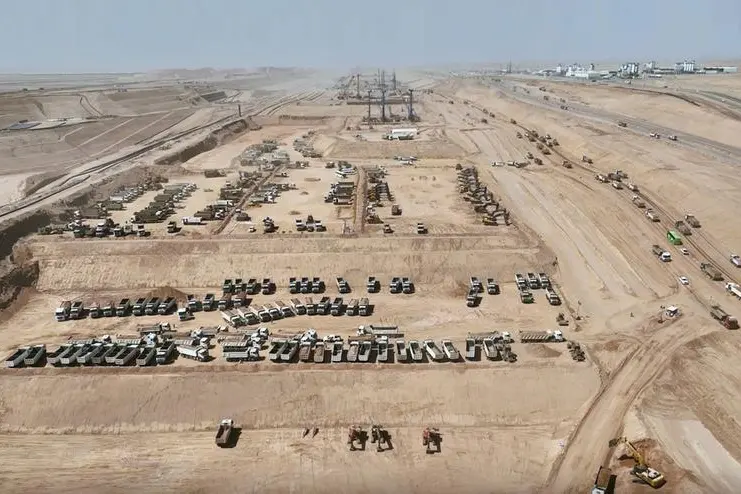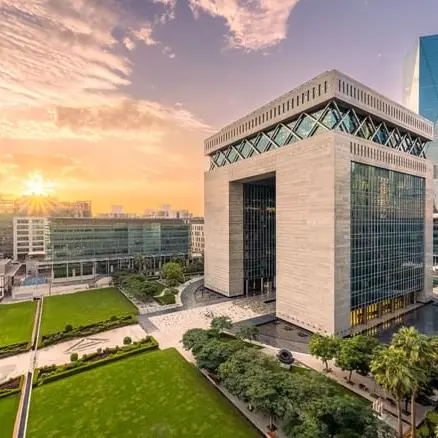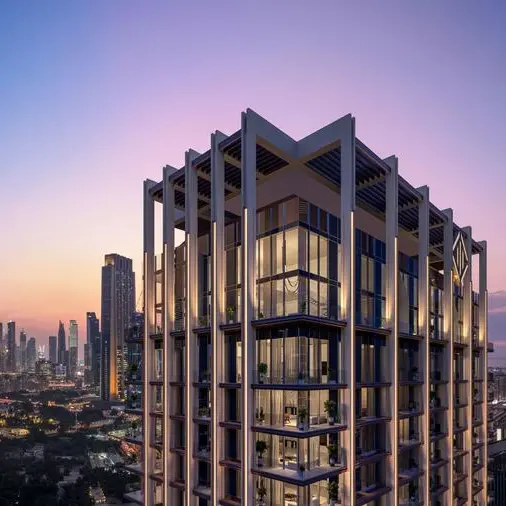PHOTO
RIYADH — Denis Hickey, chief development officer of NEOM, unveiled new details on how The LINE will function as a fully integrated, high-density, car-free city, emphasizing its livability, transport network, and groundbreaking design.
NEOM shared a video of Hickey's session about THE LINE at Davos, where he provided a clearer, more immersive vision of daily life inside the city, detailing how residents will experience an urban environment unlike anything built before.
For the first time, Hickey expanded on what it will be like to live inside The LINE. Instead of sprawling streets and neighborhoods, the city will operate as a three-dimensional vertical metropolis, built with modular sections stacked in a linear format.
“Everything you need will be within a five-minute walk,” Hickey said. “You will step outside your home and immediately have access to schools, restaurants, workspaces, hospitals, and entertainment—without needing a car, ever. This isn’t just about making a city compact. It’s about designing a place that prioritizes human well-being over congestion.”
The city’s 500-meter height will remain consistent across its entire length, creating a canyon-like structure where residents will move vertically and horizontally with ease.
“This is not a single building — it is an entire city, with its own grid system,” Hickey explained.
“Think about Manhattan. You don’t need a car in Manhattan because the subway and avenues make everything accessible. Now imagine taking that concept and evolving it — instead of moving just horizontally, The LINE allows you to move seamlessly upward as well.”
One of The LINE’s most groundbreaking features is its elimination of cars entirely, replacing traditional road networks with an ultra-efficient six-tier mobility system. Hickey explained how this would transform daily movement.
“Urban sprawl is outdated. We are moving beyond the old way of expanding cities by simply adding more roads. The LINE will be the world’s first major city built without cars. Instead, residents will move using a high-speed underground rail system, general mass transit, and a network of rapid vertical transportation.”
He emphasized that this design would remove the frustrations of traffic, pollution, and wasted time commuting, instead allowing people to reclaim hours of their day.
“When people hear ‘no cars,’ they ask, ‘How will I get around?’ The answer is simple: faster and more efficiently than in any city today. The average commute will be 20 minutes or less anywhere inside The LINE.”
Another revelation from Hickey’s Davos address was the futuristic stadium suspended 350 meters above ground, designed to host the 2034 FIFA World Cup and other global sporting events.
“This will be a stadium like nothing seen before,” Hickey said. “The playing field will sit at the height of the Empire State Building. Fans will experience games in a completely new way — suspended in the sky, with breathtaking views across the city.”
The stadium is part of The LINE’s network of anchor assets, ensuring that every section of the city has iconic cultural and entertainment landmarks.
“We’re not just building a place to live. We’re building a destination,” Hickey added. “Whether it’s world-class sports arenas, concert venues, museums, or immersive public spaces, The LINE will be an experience, not just a city.”
Addressing concerns that The LINE could become an exclusive city for the wealthy, Hickey stressed that the project is being developed with a full range of housing, including affordable and essential worker accommodations.
“This is not Billionaires’ Row,” he said. “We are designing a city where everyone has equal access to the best of urban living. In most cities, if you don’t live near the park or downtown, you miss out on the best amenities. In The LINE, every resident will have immediate access to green spaces, infrastructure, and cultural landmarks.”
He also noted that The LINE’s first phase, Hidden Marina, will accommodate over 200,000 people, with schools, places of worship, police and fire stations, hospitals, and commercial districts all integrated into the urban fabric.
Hickey also tackled concerns about energy use and climate control inside The LINE, explaining that the city will not rely on air conditioning as many assume.
“The glass facade of The LINE is not about trapping heat—it is about reflecting sunlight and maintaining a comfortable urban climate,” he said. “The city will be breathable and open, allowing natural airflow and sustainable temperature regulation.”
Artificial intelligence will play a crucial role in managing everything from transportation to energy efficiency, making the city not just technologically advanced but also highly adaptive to residents’ needs.
“The goal is not to build a city that just looks futuristic—it has to function in a way that enhances daily life,” Hickey emphasized. “This means AI that doesn’t act as ‘Big Brother,’ but rather as a guardian angel—improving security, optimizing transport, and making the city work seamlessly.”
Hickey closed his address by reaffirming that The LINE is no longer just a vision—it is actively under construction, with foundations already being laid.
“This is not science fiction. The cranes are up, the workers are on site, and The LINE is becoming a reality,” he said.
© Copyright 2022 The Saudi Gazette. All Rights Reserved. Provided by SyndiGate Media Inc. (Syndigate.info).





















